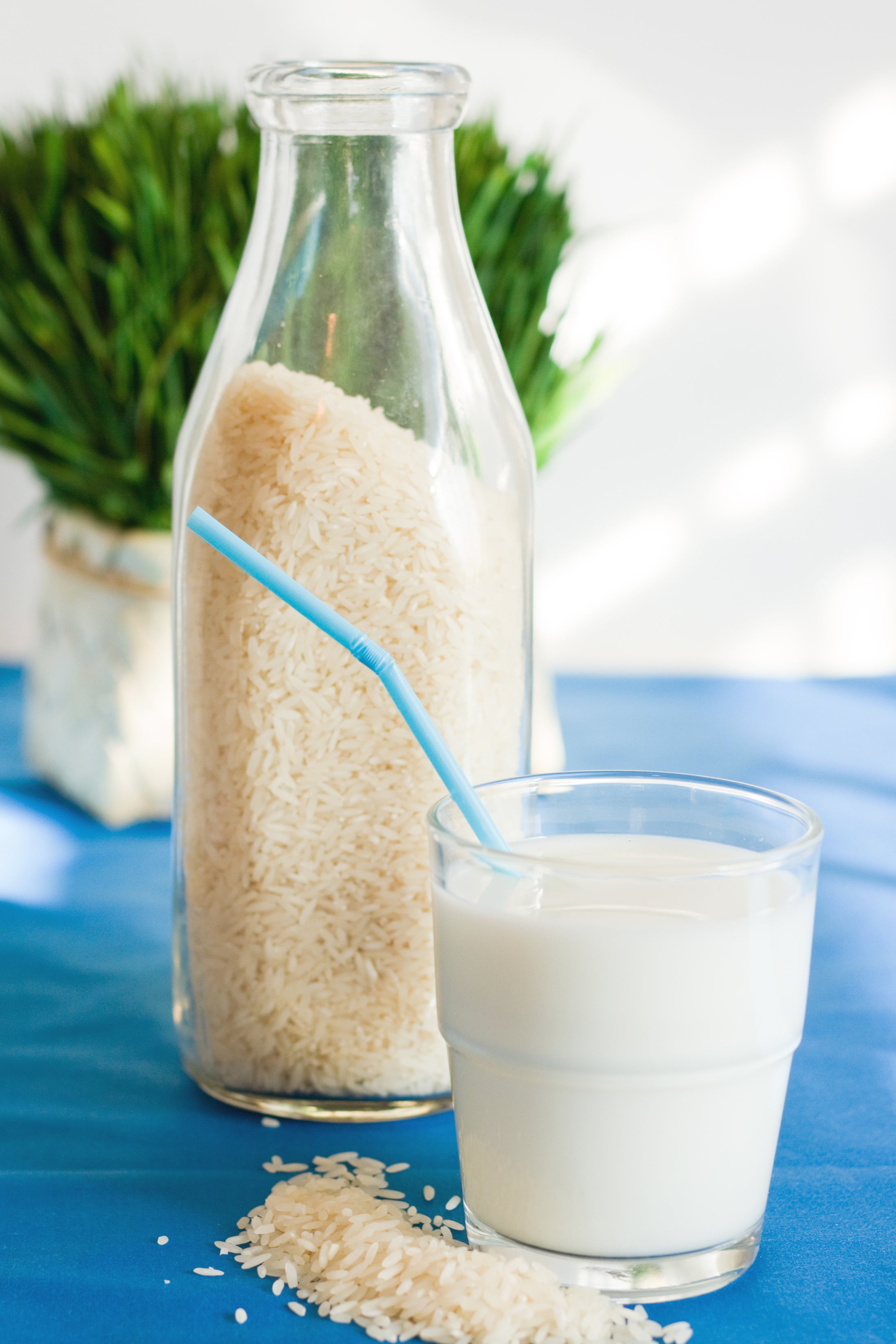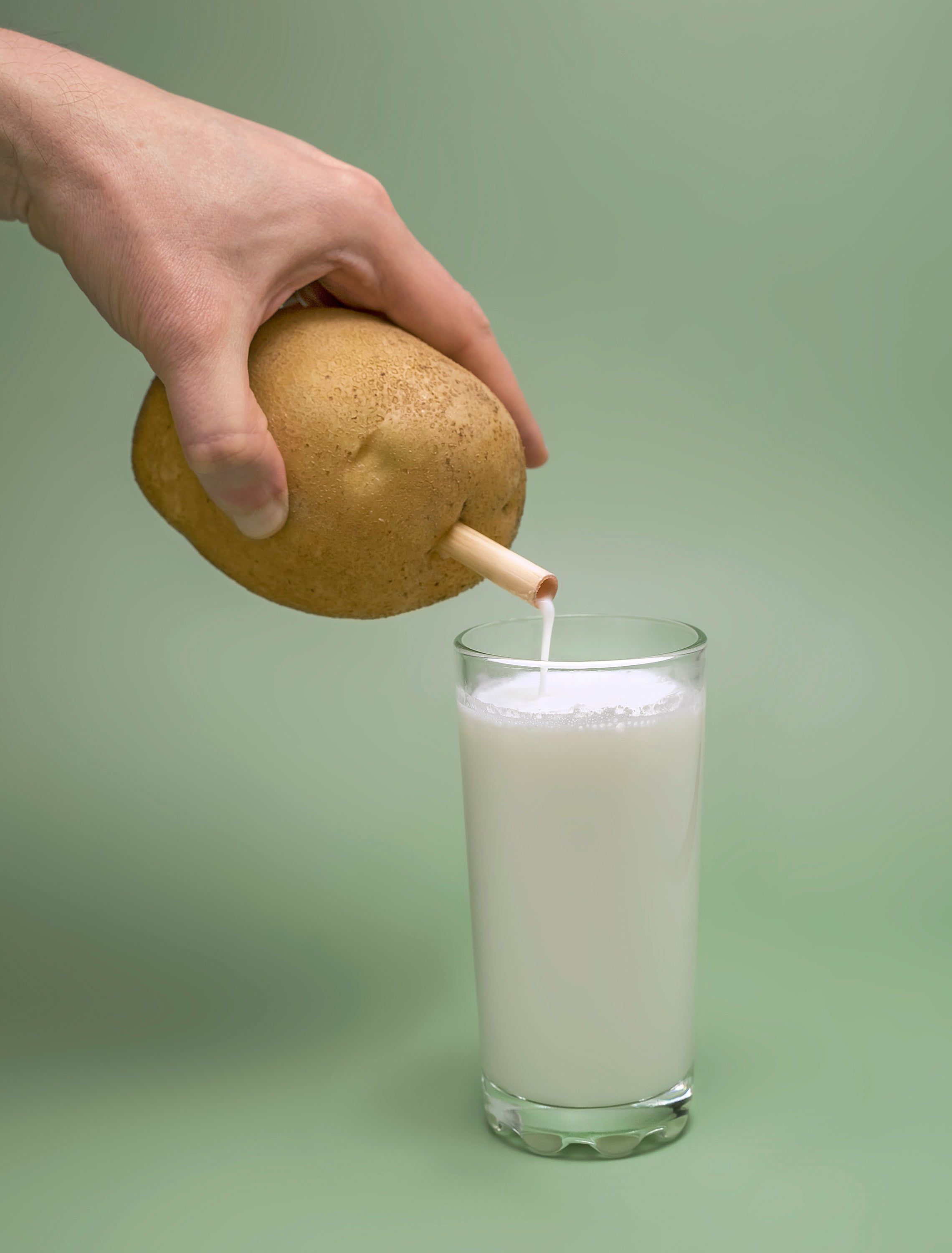
When it comes to plant-based milks, the options are vastly expanding. Legumes, cereals, nuts and seeds are now all being used to produce alternatives to cow’s milk.
From humble soya to innovative potato, choosing a dairy-free milk in the expanding market can feel overwhelming. So which ones should you be putting in your basket, and which will provide the nourishment that you need without dairy?
Soya milk
Soya milk is a popular choice among plant milk consumers and is made by soaking, grinding and boiling soyabeans. Soya milk is high in protein at 3.3g per 100ml, compared to 3.4g in dairy milk and contains good quantities of all nine of the essential protein building blocks called amino acids. Soya also contains beneficial isoflavones and has been found to have cholesterol-lowering properties, so it is a good choice for those with raised levels. With its creamy texture, soya milk is a palatable option for many, but should be avoided by anyone with a soya allergy.
Almond milk
Almond milk is produced by soaking and blending almonds. It is a low-energy option that is also low in protein at 0.4g per 100ml, but this does vary across brands. Almond milk is a good source of heart-healthy mono-unsaturated fatty acids, as well as vitamin E, which acts as an antioxidant in our bodies. With its mildly nutty flavour, it is a great option for use on cereals.
Oat milk
Oat milk is made in the same way as almond milk, producing a creamy and well-tolerated texture and flavour that can be used in drinks, over cereals and in baking. Oat milk is now the most popular vegan milk available. Compared to almond and rice milk, oat milk tends to have a little more protein at 1.1g/100ml and may also contribute to improved cholesterol levels. If you have coeliac disease, oat milk is one to avoid due to the potential contamination with gluten-containing cereals.
Coconut milk
Coconut milk that is created for drinking is made by boiling grated coconut in water and straining the liquid. Due to this processing method, it is generally far lower in fat than coconut milk produced for cooking, at only 0.9g of fat per 100 ml compared to 18.1g. Coconut milk for drinking is low in protein but can add flavour and sweetness to hot drinks and cereals.
Rice milk

Rice milk is made by boiling and pressing rice and straining the liquid. Rice milk has a sweeter taste with a higher carbohydrate content compared to other plant milks. It is naturally low in protein and other nutrients but can be considered a good alternative for those with nut or soya allergies.
Hemp milk
Made by blending hemp seeds with water, hemp milk is also low in protein but does provide the essential polyunsaturated fatty acids omega 3 and omega 6. Hemp milk is often used in cereals, cooking and baking.
Pea milk
Pea milk most commonly uses yellow split peas, with the protein blended with water to produce the milk. Pea milk provides a little more protein than other plant milks at around 2.4g per 100ml.
Hazelnut milk
Hazelnut milk is produced from roasted hazelnuts that are soaked and blended with water. The result is a sweet, thick and rich fluid that can be enjoyed in smoothies, over cereal and in indulgent coffees and hot chocolates.
Cashew milk
Cashew milk is another creamy milk made by soaking, blending and straining cashews. Like almond milk, it is a low-energy source of vitamin E but it is also low in protein and fibre. Cashew milk has a subtle nutty flavour and can be a good option for use in cooking, baking and to add to your coffee.
Potato milk

Potato milk is the new plant milk kid on the block. It is high in fibre and great for those with allergies as it is free from lactose, milk, soy, gluten and nuts. Luckily the processing leaves the potato flavour behind resulting in a neutral, creamy milk with a subtle sweetness.
Which plant milks should we buy?
When choosing your plant milks, go for ones that are unsweetened to avoid unnecessary added sugar. It is also important to meet your calcium requirements when moving to a plant-based diet, and fortified plant milks can be a significant contributor. Fortified milks also often come with added vitamin D and B12 too.
As cow’s milk is regularly promoted for protein, plant-milks (except for soya), are often condemned for their lower protein content. Milk is not a significant contributor to protein in a healthy, balanced diet, however. This means that although additional sources of plant-based protein can be useful for plant-based athletes or those who are unwell, the general population do not need to rely on milk alternatives, due to the abundance of protein in foods such as tofu, beans, pulses and peas.
Plant milks have been criticised for a variety of environmental factors; for example, the quantity of water required to grow almonds. Despite this criticism, plant milks have a lower overall environmental impact than cow’s milk. All plant-based milk alternatives, including almond milk, use less land and water and produce fewer greenhouse gas emissions than cow’s milk.
As you can see, each plant milk has its own unique nutritional profile. When measuring up the nutritional content in comparison to cow’s milk, soya takes first place due to its protein content, but is this one the best? As most of us can get all the nutrition we need from the foods we choose in our diet, I would argue that the best plant milk is the one you enjoy most. And with all the science showing us that plant diversity is key, why choose just one?
Rosie Martin is a registered dietitian for Plant Based Health Professionals UK







